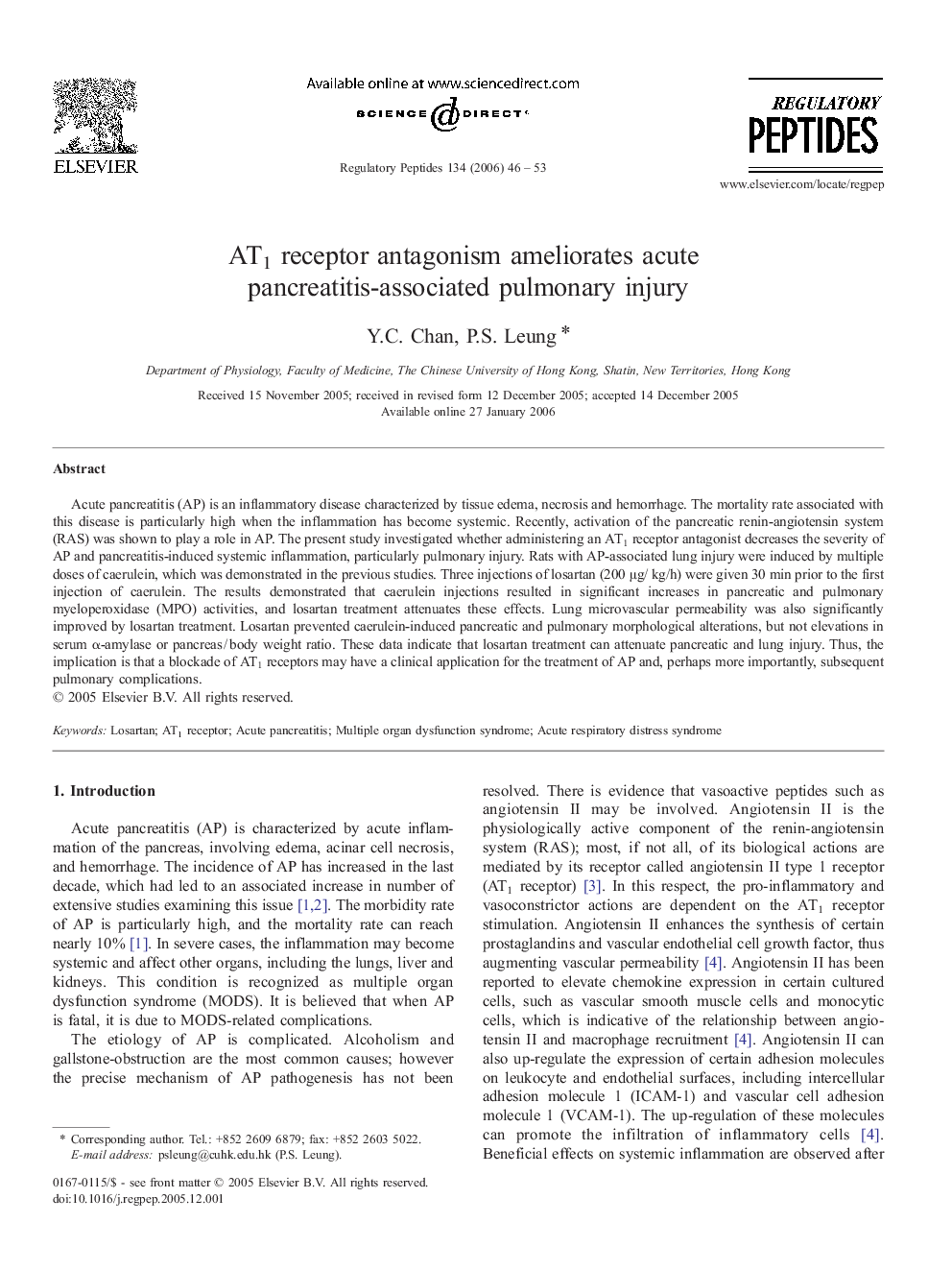| Article ID | Journal | Published Year | Pages | File Type |
|---|---|---|---|---|
| 2023567 | Regulatory Peptides | 2006 | 8 Pages |
Abstract
Acute pancreatitis (AP) is an inflammatory disease characterized by tissue edema, necrosis and hemorrhage. The mortality rate associated with this disease is particularly high when the inflammation has become systemic. Recently, activation of the pancreatic renin-angiotensin system (RAS) was shown to play a role in AP. The present study investigated whether administering an AT1 receptor antagonist decreases the severity of AP and pancreatitis-induced systemic inflammation, particularly pulmonary injury. Rats with AP-associated lung injury were induced by multiple doses of caerulein, which was demonstrated in the previous studies. Three injections of losartan (200 μg/ kg/h) were given 30 min prior to the first injection of caerulein. The results demonstrated that caerulein injections resulted in significant increases in pancreatic and pulmonary myeloperoxidase (MPO) activities, and losartan treatment attenuates these effects. Lung microvascular permeability was also significantly improved by losartan treatment. Losartan prevented caerulein-induced pancreatic and pulmonary morphological alterations, but not elevations in serum α-amylase or pancreas / body weight ratio. These data indicate that losartan treatment can attenuate pancreatic and lung injury. Thus, the implication is that a blockade of AT1 receptors may have a clinical application for the treatment of AP and, perhaps more importantly, subsequent pulmonary complications.
Keywords
Related Topics
Life Sciences
Biochemistry, Genetics and Molecular Biology
Biochemistry
Authors
Y.C. Chan, P.S. Leung,
